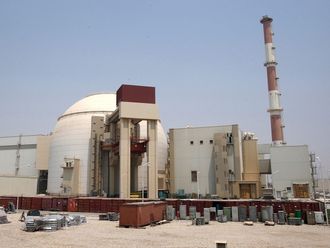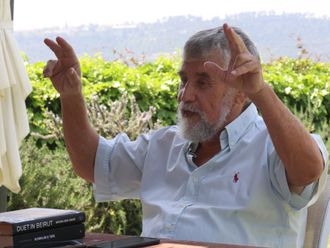Washington: The Pentagon on Tuesday blamed “unintentional” human mistakes for the US-led air strikes in September that killed dozens of Syrian government troops. The attacks were conducted under the “good-faith belief” that the targets were Daesh militants, according to the official inquiry.
The investigation, led by an Air Force general, concluded that the strikes did not violate the law of armed conflict or the rules for the US military. Danish, British and Australian forces also participated in the strikes.
“In my opinion, these were a number of people all doing their best to do a good job,” said Brigadier-General Richard A. Coe, who led the investigation.
At the time, the Russians, who have been working closely with the forces of President Bashar Al Assad of Syria to fight the Daesh and other rebels, said the attack had killed 62 Syrian troops and injured more than 100.
Russia said the strikes had enabled the Daesh to capture more territory. The Syrian government said they were “a very serious and flagrant aggression” and accused the United States of supporting the Daesh in its efforts to overthrow Al Assad.
The strikes occurred as a deal to ease hostilities in Syria, brokered by the United States and Russia, was unravelling.
According to a redacted copy of a report that summarised the investigation, a drone examined an area near an airfield in Deir Al Zor province in eastern Syria on September 16, identifying a tunnel entrance, two tents and 10 men. The forces were not wearing recognisable military uniforms or identification flags, and there were no other signs of their ties to the government, the inquiry found.
“In many ways, these forces looked and acted like the Daesh forces the coalition has been targeting for the last two years,” Coe said.
The next day, drones and jets were deployed to attack the airfield. They began hitting tanks and armoured vehicles. In all, 34 precision-guided missiles were dropped on the Syrian forces.
An hour after the strikes began, the Russians informed the United States that the coalition was attacking Syrian forces. Four minutes later, the strikes were halted.
The investigation laid out a series of changes to the targeting process that the military has already made, including more information-sharing among analysts.












